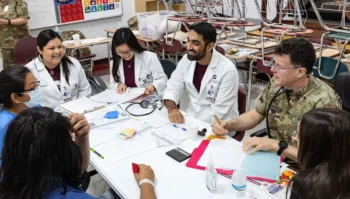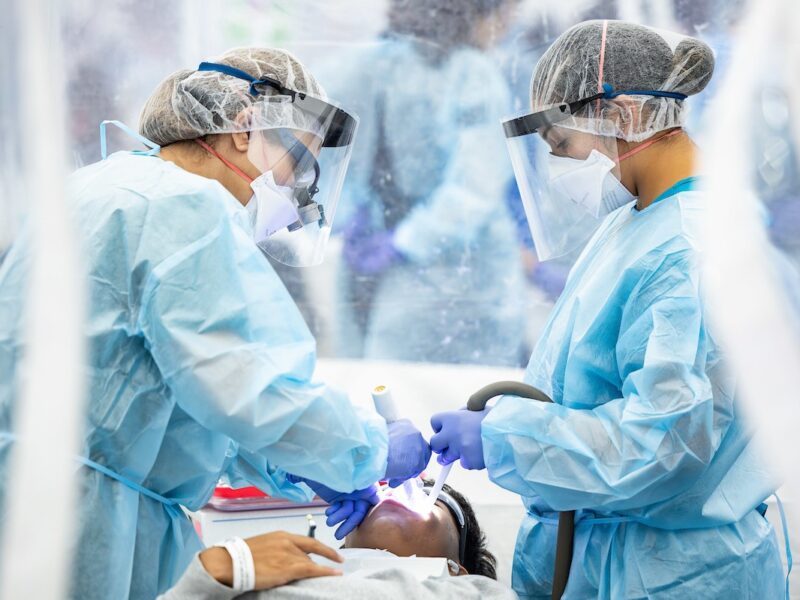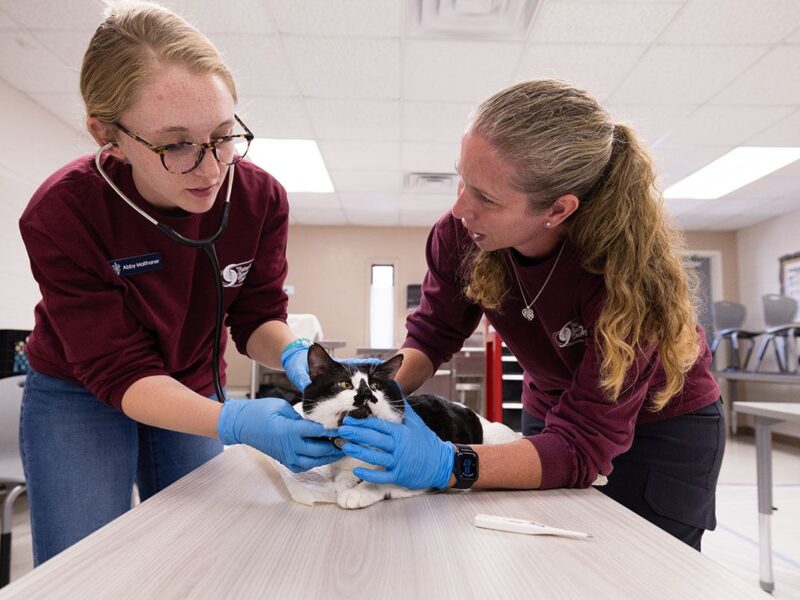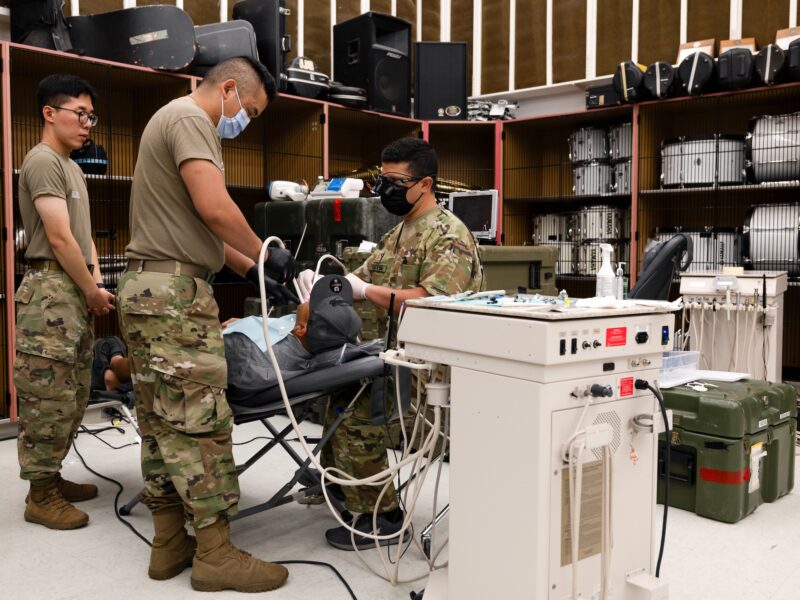Health Profession Students Prepare For Emergencies While Serving South Texas

Texas A&M University Health Science Center (Texas A&M Health) participated once again in Operation Border Health Preparedness, an emergency preparedness exercise that was held in the Rio Grande Valley region of South Texas July 24-28. The annual event is led by the Texas Department of State Health Services in coordination with local, county and city health departments, human service organizations, Texas Military Forces, medical schools and universities as well as out-of-state agencies. In addition to serving as an emergency preparedness training, the event brings free health care to areas of South Texas where access to care can be challenging.
This is the 24th year Operation Border Health Preparedness has been conducted and the fifth year Texas A&M Health has participated. Students, faculty and staff from the Texas A&M schools of medicine, nursing, pharmacy and public health took part in this year’s event, along with nutrition, clinical psychology and veterinarian students at Texas A&M. Last year’s clinics provided more than 30,000 services to just under 6,400 people.
Members of the Rio Grande Valley community benefit greatly from this operation, not only because their community is preparing for the worst-case scenario, but also because they receive free health care. Clinics were set up in five cities this year — Brownsville, Laredo, Raymondville, Rio Grande City and San Juan — and provided numerous services, including free physicals, screenings, dental care, immunizations, vision exams and free eyeglasses. The Raymondville site also provided veterinary services for cats and dogs. In this medically underserved region, this event is many residents’ sole opportunity to receive care. Some participants even camp overnight at the sites to secure a spot in line.
More than 100 Texas A&M Health students traveled from multiple locations to volunteer in the exercise. The drill allowed them to serve the Valley while practicing the unique clinical, non-clinical and interprofessional skills required in an emergency scenario, working alongside health care providers and public health professionals in different sectors.
The Office Interprofessional Education and Research at Texas A&M Health, which is led by Dr. Christine Kaunas, coordinates the health science center’s involvement in the operation each year. Kaunas says this is a unique and valuable educational opportunity for all involved.
“Students get a first-hand look at what their role might be when, not if, a disaster strikes,” Kaunas said. “They engage in collaborative practice alongside the Texas State Guard and public health professionals, all while serving the people of the Rio Grande Valley, where there is great need for improved access and care. We have worked hard over the last five years to develop relationships with the amazing and various partners of this large-scale exercise, and we are fortunate to be part of the Operation Border Health Preparedness community.”
Nursing students and faculty took the School of Nursing mobile clinic to Rio Grande City, where they provided bus driver physicals and served as overflow for services such as vitals and immunizations. Public health students worked at multiple clinic sites to collect data as well as in the Regional Health and Medical Operations Center to process the data, identify process improvements and prepare reports for all stakeholders. They also engaged in health promotion efforts related to smoking cessation and car seat safety. Medical students assisted State Guard Medical Corps physicians to provide primary care, including sports physicals for middle and high school student athletes. In addition, MD/MPH student Sunitha Konatham offered a free virtual continuing education training for all Operation Border Health Preparedness participants on how to identify and respond to victims of human trafficking in a clinical setting.
The School of Pharmacy had the largest participation from Texas A&M Health this year, with second- and third-year pharmacy students working in multiple capacities. Some worked with health care providers in the medical clinics, counseling patients and helping the providers select the best medication for the patients. Others assisted Texas A&M Health Coastal Bend Health Education Center and Texas A&M Healthy South Texas personnel in the Medication Assistance Program, which identifies opportunities for patients to get the prescription medications they need when cost is a barrier. Students also had the opportunity to work in the dental clinic, an experience third-year pharmacy student Jessica Sierra said opened her eyes to the various arenas where pharmacists can apply their skills.
“This is my first time participating in this event. I didn’t know all of this was offered for pharmacy students,” said Sierra, who is from Edinburg, Texas, a city in the Rio Grande Valley. “This experience helped me, and other health care professionals here, understand that pharmacists are involved in a lot of areas people don’t realize. Here in the dental care clinic, I’m helping with data and consulting when medications like antibiotics are prescribed after a procedure.”
For people like Sierra, the event is not just a learning experience; it’s also an opportunity to “pass it back” to the communities they’re from, said Asim Abu-Baker, associate dean for clinical and professional affairs at the School of Pharmacy.
“The experience has been great in terms of working side-by-side with health professionals to serve the population here in San Juan,” Abu-Baker said. “A lot of the pharmacy students participating at this event are actually from the Rio Grande Valley. Historically we’ve had students who have come to Operation Border Health Preparedness as kids to get their glasses or their physicals, and so it’s nice for them to come back and serve the same community.”
This article by Lindsey Hendrix originally appeared on Vital Record.





